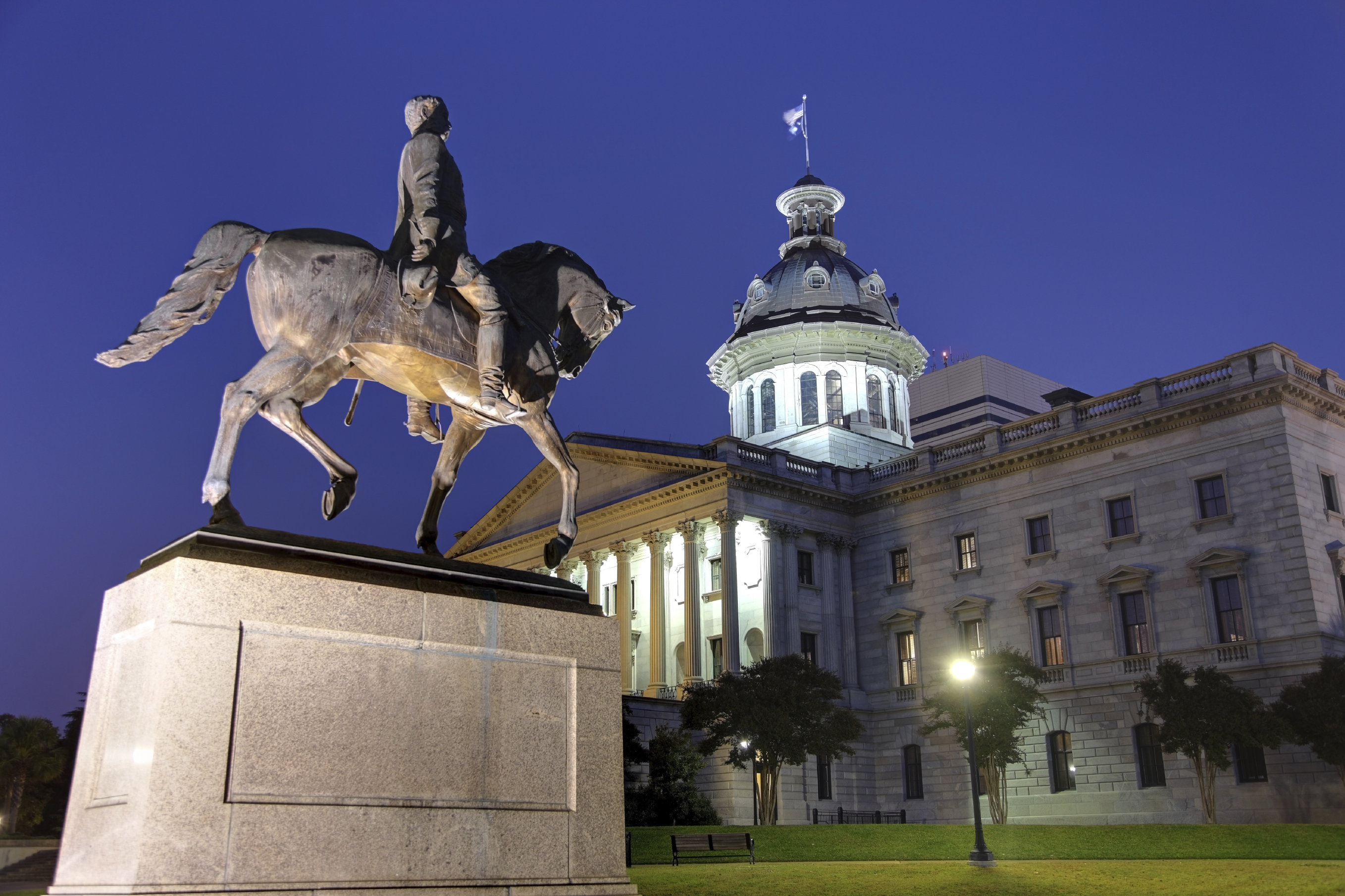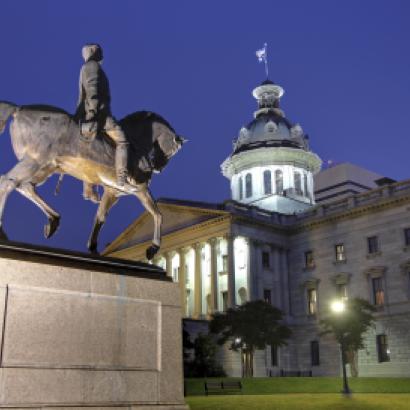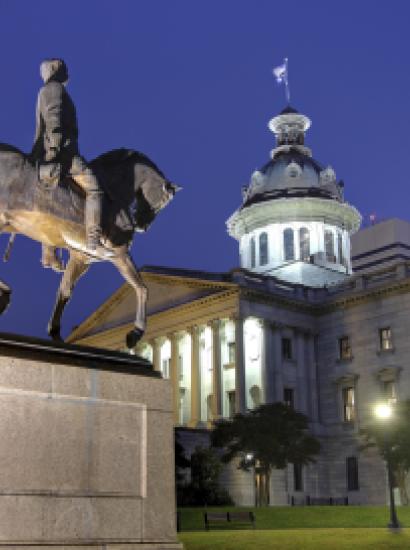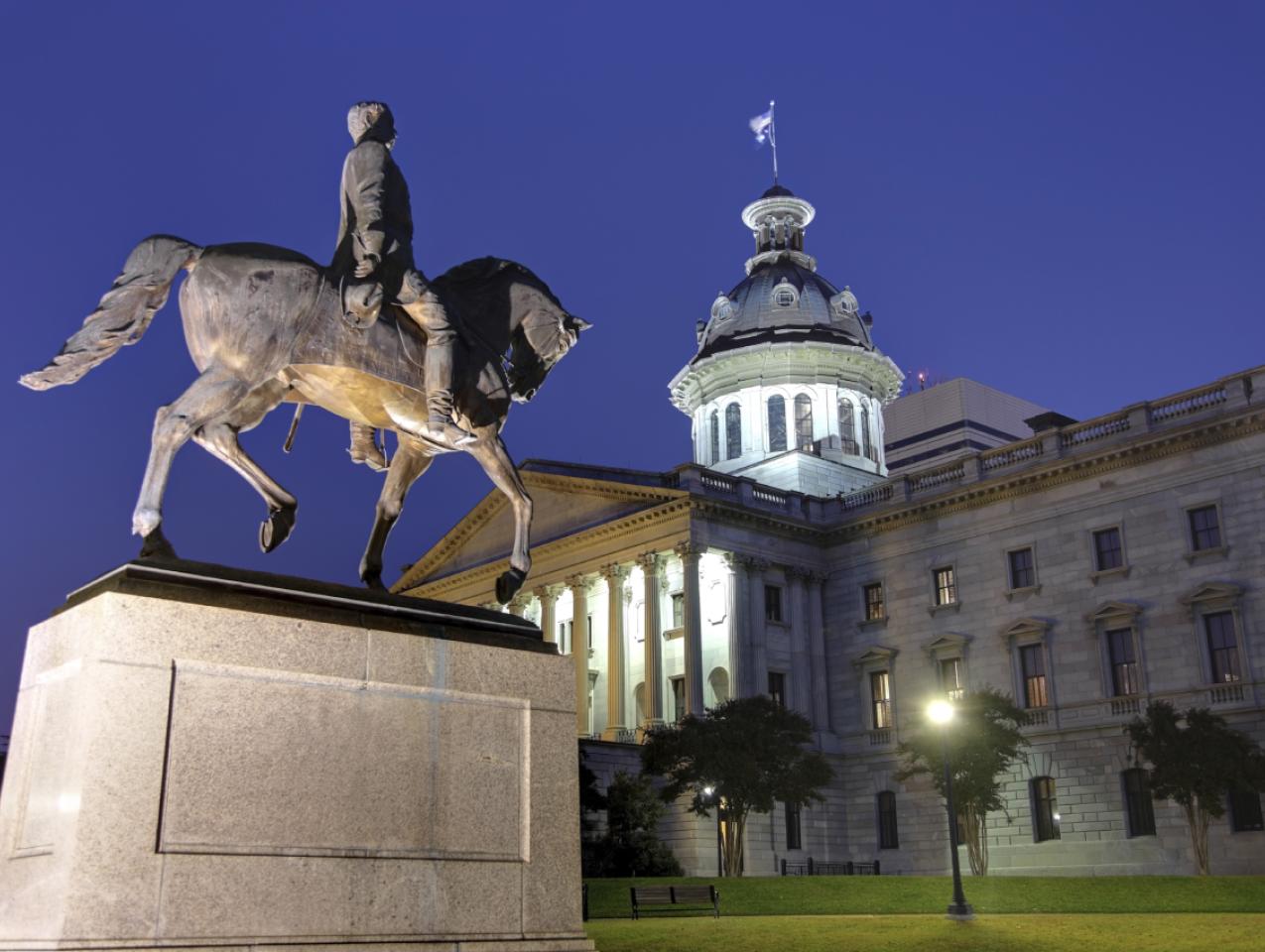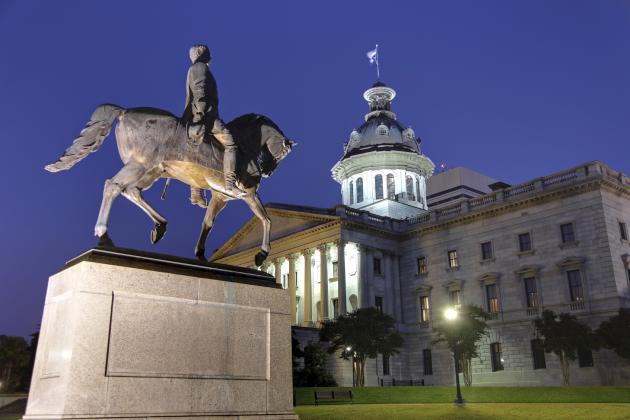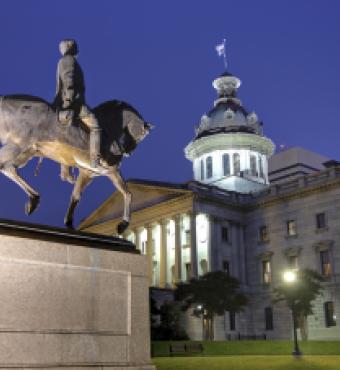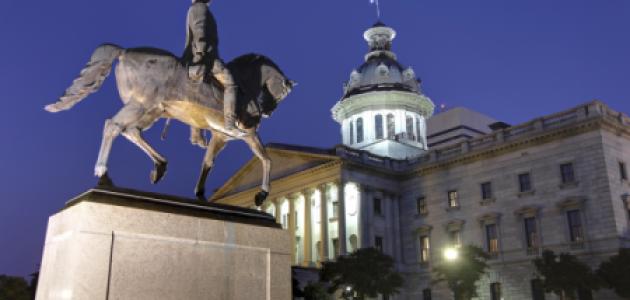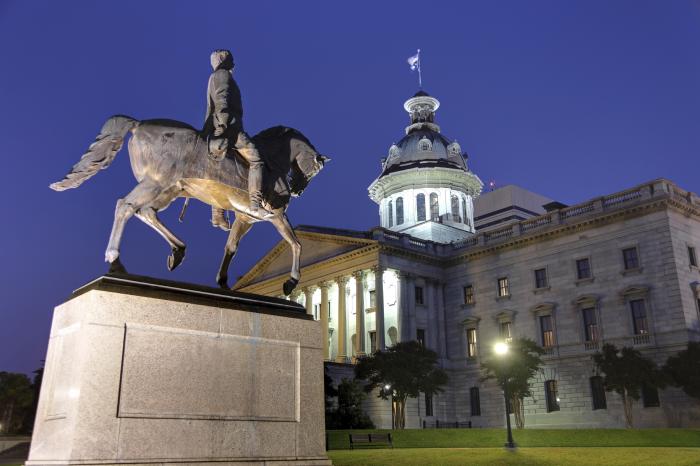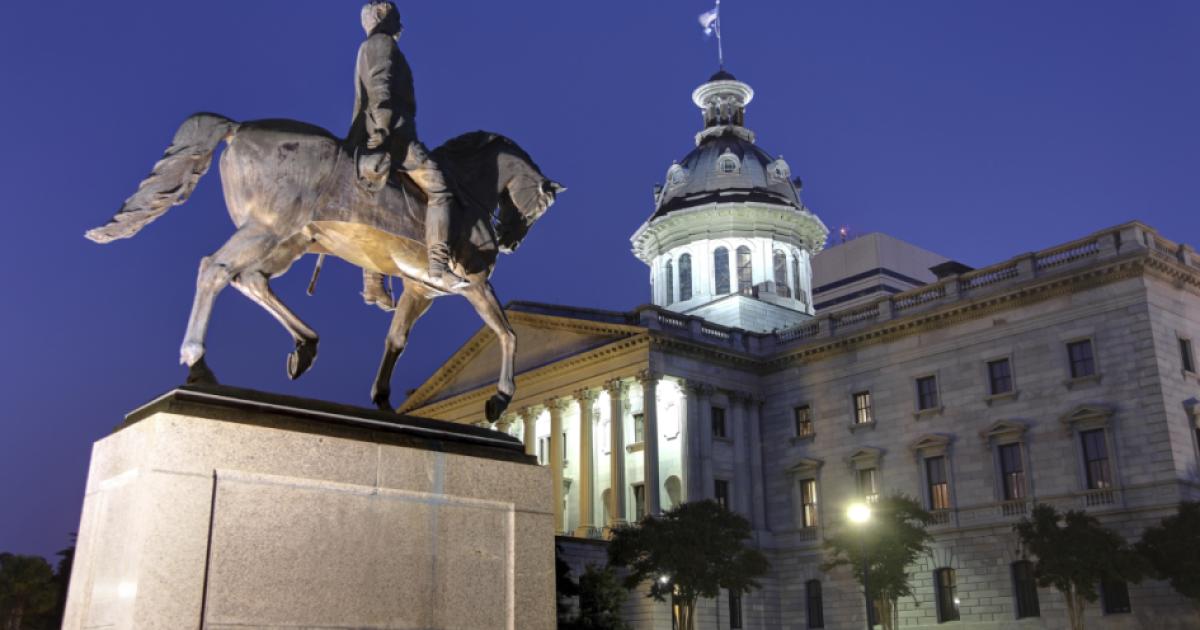- Politics, Institutions, and Public Opinion
- State & Local
- California
California far outpaces America’s 49 other states in wealth, economic output, and innovation spending (by some estimates, nearly one-third of the nation’s overall R&D spending).
Unfortunately, America’s nation-state also leads the way in public virtue-signaling.
Here’s such an example from the past week: California attorney general Xavier Becerra announcing a ban on state-funded travel to South Carolina.
Becerra’s beef with the Palmetto State? A measure that allows faith-based foster agencies to “discriminate” against gays. Specifically, a provision buried in last year’s South Carolina budget bill that allows Greenville-based Miracle Hill Ministries, a child placement agency, to deem only heterosexual, Protestant families as foster-parent material.
It’s not the first time California has lashed out in such a manner, thanks to a 2017 law that prohibits state-funded or state-sponsored travel to other states that, in California’s estimation, discriminate on the basis of sexual orientation, gender identity, or gender expression.
In fact, once the South Carolina ban kicks into effect on April 15, a total of 10 states will be on California’s “no fly” list. The other nine: Alabama, Kansas, Kentucky, Mississippi, North Carolina, Oklahoma, South Dakota, Tennessee and Texas—perhaps not coincidentally, all socially conservative “red states” nowhere in the proximity of the PC West Coast.
(Kentucky’s “offense” is particularly interesting; the Bluegrass State made the list after state lawmakers passed a bill protecting religious expression in public schools by preventing school officials from punishing students for wearing religious messages on their clothes or for expressing religious or political beliefs in their homework, art, or speeches. It was dubbed the “Charlie Brown law” after a Kentucky school cut a biblical passage—Linus reciting the story of Christ the Lord’s birth from the Book of Luke—from its production of “A Charlie Brown Christmas.”)
But don’t look for such a thing as a 21st-century “war between the states” between California and South Carolina. The closest thing to a harsh backlash coming out of Columbia and South Carolina’s State House was this tongue-in-cheek tweet by a gubernatorial spokesman: “En route to (Emergency Management Division) headquarters to figure out if the governor needs to declare a state of emergency. How will South Carolina recover?"
Actually, sarcastic eye-rolling is mild compared to other states’ expressed opinions of California.
Texas governor Greg Abbott liked to utter the phrase “Don’t California My Texas” while seeking re-election. He was tapping into his state’s love for open space, lower taxes, and affordable living (BTW, the slogan has been a boon for T-shirt sellers).
In Portland, Oregon, locals resorted to vandalism—spray-painting “Go Back to California,” “Get California out of Portland,” and “Move Out” on the cars and houses—in cases of so-called “transplant microaggression.” One disgruntled local went so far as to create a GoFundMe page called “Get Californians out of Oregon” (the campaign is no longer active—and it raised a mere $107).
You’ll note that this brand of California-loathing is economic in its nature. But it’s the nation-state’s moral preening that bothers other corners of America.
And that takes us to governor Gavin Newsom’s visit this week to El Salvador—his first international trip since taking office in January (I was going to add a few words about a group of Hollywood notables wanting to boycott Georgia over that state’s abortion policy, but let’s stick to California’s elected leaders).
Newsom’s journey to the Central American nation was a departure (no pun intended) from previous California governors, who traveled abroad mostly to promote state goods and services (that said, Jerry Brown did use a 2017 visit to the Vatican to bluster about climate change).
The gubernatorial trip had political overtones, given that Newsom chose to wade into the thorny topic of immigration and migrant caravans on heels of President Trump’s visit to the California-Mexico border last week.
And Newsom’s visit seemed a little . . . well, head-scratching. Newsom justified the effort as a way to learn firsthand why Salvadorans want to come to the United States. But the nation’s problems are self-evident: for years, El Salvador has been plagued by gangs and violence; the migration north stems from terror and economic opportunity.
Depending on one’s ideological stripes, Newsom either was standing up for his constituents (nearly 680,000 Salvadoran immigrants, a larger population than that of all but four California cities, reside in the Golden State), or engaging in anti-Trump political grandstanding that keeps the governor in the national conversation.
That latter point didn’t go unnoticed by the Los Angeles Times’s George Skelton, the dean of the Sacramento press corps: “It looked like an early April Fools’ joke at first. But, no, it was just an ambitious rookie governor trying to play world leader.”
And it was seconded by at least one Republican state lawmaker: “I’ve got areas in my district that are flooding,” said assemblyman Devon Mathis, who frequently clashes with Newsom on such matters as water storage and high-speed rail. “Not in Central America. Come see the central San Joaquin Valley. . . . Come down to where we have Third World conditions.”
The whiff of sanctimony hovering over Newsom’s visit was hard to miss. That includes a gubernatorial photo op at the tomb of civil-rights martyr Saint Oscar Romero, who was assassinated in March 1980 while celebrating Mass in the chapel of a cancer hospital where he lived.
Newsom tweeted a photo of the visit, along with the following quote from the slain archbishop: “Peace is not the product of terror or fear. . . . Peace is not the silent result of violent repression. Peace is the generous, tranquil contribution of all to the good of all. Peace is dynamism. Peace is generosity. It is right and it is duty.”
Newsom made it clear that he had no intention of leaving politics at the water’s edge: “Right now you have a president that talks down to people, talks past them, demoralizing folks living here and their relatives in the United States. I think it’s important to let folks know that’s not our country—that’s an individual in our country who happens at this moment to be president.”
And he offered this defense of his first overseas jaunt: “How do you understand California without understanding all the diverse cultures that makes it the most diverse state in the world’s most diverse democracy?”
“It’s fundamental, it seems to me, to governing a state.”
How sad that this search for enlightenment and a better appreciation of cultural differences doesn’t apply to those 10 American states that have run afoul of California’s “woke” politics.







